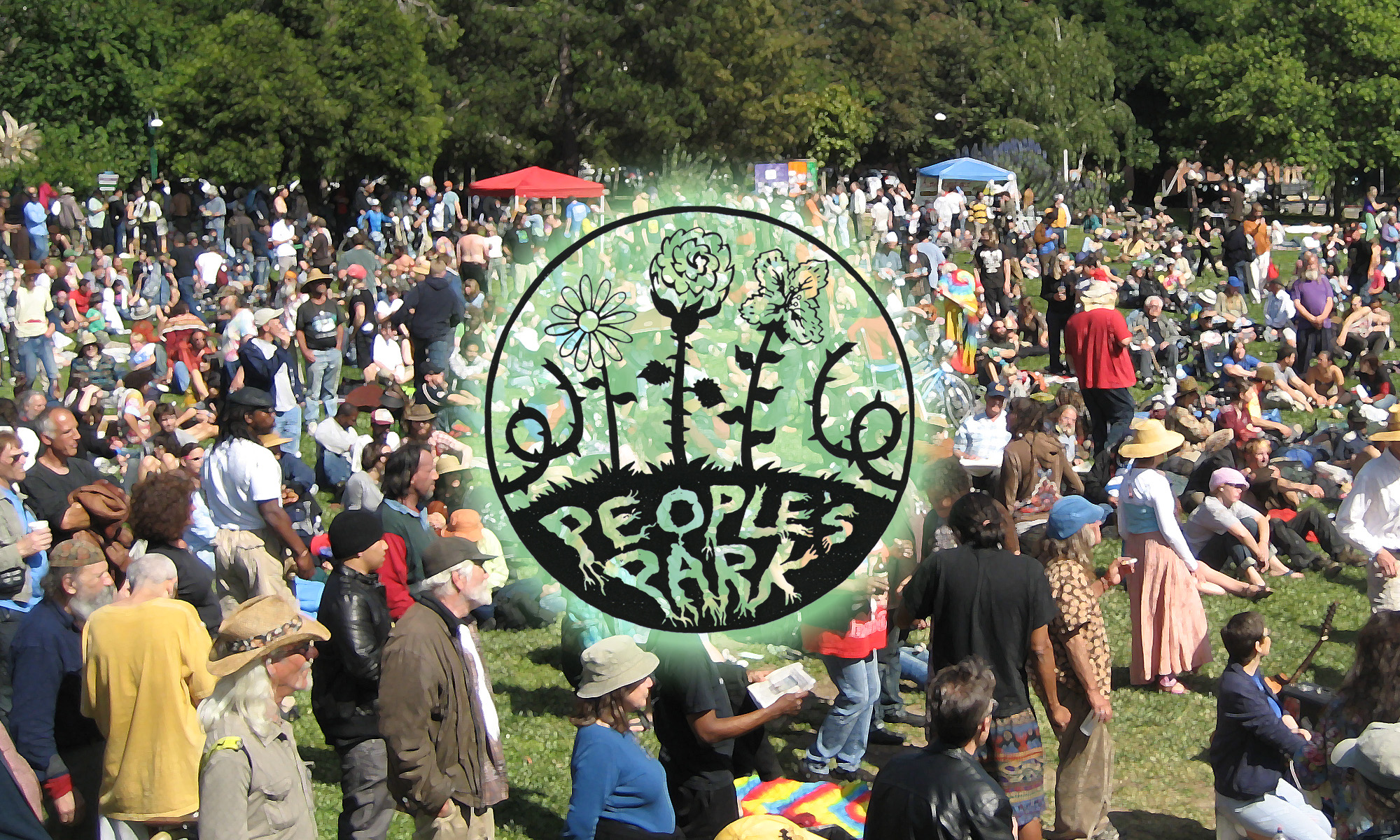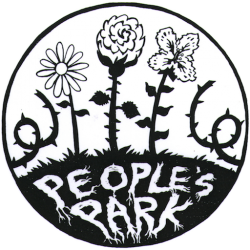July 9, 2024
Dear Chancellor Lyons:
We are disappointed that you will not meet with us. Your predecessor also never deemed it necessary to meet with those who support the preservation of People’s Park. Because she was not able to achieve total destruction of the park before she left her position, you will inherit that distinction. We do not know how aware you are of the background that led us to this point, but we’d like to explain that like the Free Speech Movement and other controversial issues at Cal, the battle for People’s Park will not disappear once the heavy equipment rolls onto the site.
Despite the misstatements by Dan Mogulof regarding the “strong support” manufactured for the project, our Open Letter, which the People’s Park Historic District Advocacy Group began circulating in 2021, stands in stark contrast. Many have signed on since, and many other supporters have joined in the effort to protect People’s Park. The nearly 150 signatures on the Open Letter include Berkeley residents, UCB professors, three former Berkeley mayors, three former Berkeley city councilmembers, many former Berkeley commissioners, Cal alumni and students, attorneys, architects, historians and many others who are concerned about the threatened destruction of People’s Park.
Additionally, several student groups support preservation of People’s Park – Pay Your Workers Campaign, Historic Preservation Club, Cal ACLU, and Suitcase Clinic. Add to that, two resolutions from the ASUC opposing destruction of the park, the Berkeley Faculty Association’s questioning of the project, and the many editorials in support of the park in the Daily Cal. Support has also come from the country’s leading preservation organization – The National Trust for Historic Preservation.
These park advocates are clearly not the profile of “privileged NIMBY neighbors” claimed by the UC administration. They have all recognized a particularly bad plan when so many viable alternative sites for student housing are available. UC has given the community the false choice of having either a park or a dorm when we can have both.
Respecting the State Supreme Court decision is difficult if one understands that AB 1307 undercut park proponents’ win in the State Court of Appeal. AB 1307 was nothing more than a sweetheart, backroom deal concocted by Assemblyperson Buffy Wicks. She had absolutely no contact with the plaintiffs in the court case or with any park proponents in the district she purportedly represents. There were no legislative committee hearings that aired arguments on the bill, pro and con. The bill can only be described as a piece of special interest legislation with the special interest being none other than UC.
This outcome is disappointing because the nonprofit, community-based organizations were only asking for a public process under the California Environmental Quality Act. The Court of Appeal clearly saw that UC pursued a private process in determining it had no alternative other than to build on People’s Park. Our groups hired legal representation at great expense to advocate for transparency from UC. We played by the rules, and when UC did not like the outcome, it got the rules changed.
This begs the question – Is the project about student housing or about destroying the park? This is particularly evident when the millions of wasted dollars of public funds are considered due to delays, legal and police costs, and the shipping container wall with razor wire.
In order to meet its housing goal, UCB has claimed that it wants to build as much student housing as soon as possible. However, as an indication of its outrageously poor planning to reach the goal, UCB chose People’s Park as Housing Project #2 and then admitted early on that it would certainly experience delays due to the controversial nature of the project. Anchor House, Housing Project # 1, is nearly completed. If any of the many alternative sites had been chosen for Housing Project #2, it would likewise be nearly complete.
Cal touts that 1.7 acres of the park would remain open space after development. However, the increasingly densely populated Southside needs probably at least three times the acreage of People’s Park to meet urban green space standards at the international, national, state or city level. Stripping much-needed open space from students and the community is particularly perverse because it is unnecessary. We also know that beyond the ever-growing borders of the Cal campus there is still a “Berkeley community.”
Cal states it has “secured housing vouchers from the City of Berkeley for this project” neglecting to explain that housing vouchers come from the federal Housing and Urban Development voucher program. Vouchers would only be available if UC completed an environmental impact report in compliance with the National Environmental Policy Act, a requirement UC refused for its original supportive housing project. Since UC has destroyed a site on the National Register of Historic Places, this will likely be a major deterrent for any potential nonprofit housing developer.
Not only are the proposed buildings out-of-keeping with the area, they overshadow a National Landmark (Bernard Maybeck’s First Church), a building by famed architect Julia Morgan, the Anna Head complex by the founding member of Berkeley’s Ratcliff architectural dynasty, and many other historic structures that surround People’s Park.
The university claims to honor the historic importance of the park but does so by destroying a place that is an official city landmark, recognized by the State Historic Resources Commission. And People’s Park is also listed on the federal government’s National Register of Historic Places as a site of such national importance that it’s worthy of preservation. So UC’s idea of honoring this historic place is to destroy it.
Chancellor Lyon, inviting us to give “input and ideas regarding planning” for commemoration of the park would make us complicit in UC’s perpetration of the death and wounding of park protectors, the tremendous waste of millions of dollars in delays due to inappropriate siting of the project, and the delay of the construction of much needed student and supportive housing .
Many who consider themselves part of the Cal family honor fact-based research and support social justice. We think of these values as having been strengthened by experiences at Berkeley. Therefore, it pains most Cal-affiliated people when UC Berkeley behaves like a greedy and abusive corporation without a conscience, but with a big budget for public relations and legal representation.
Obviously corporations can make expensive miscalculations, e.g., Ford’s Edsel. UC campuses likewise have made costly planning errors, e.g., UCSB’s “Dormzilla.” However, both of these mistakes were recognized and the projects were terminated. Harm only comes when a bad decision is stubbornly sustained at the cost of institutional integrity.
Yes, this project has been well underway due to Carol Christ’s efforts, but you will inherit the mantle of the person who implemented it. If any of these details are unclear or need further elaboration, we would be happy to explain. We understand you delegating to Dan Mogulof a reply to our request for a meeting. However, we would deeply appreciate a personal reply to the critical issues raised in this letter.
Sincerely,
Harvey Smith, BA ’67, MPH, ’84, UC Berkeley
President, People’s Park Historic District Advocacy Group
peoplesparkhxdist@gmail.com, 510-684-0414


